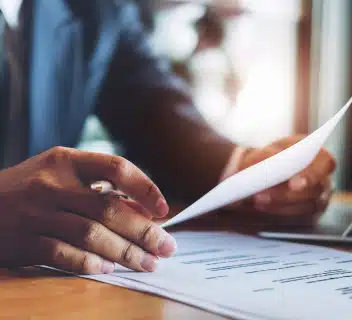Essential Questions to Ask Your Lawyer About Your Case
If you’ve been in a car accident, a lawyer consultation can help clear any confusion you may have concerning your potential case. After all, car accident litigation can be overwhelming for those who don’t have previous experience using the law to secure compensation.
That said, it’s not always clear how plaintiff victims should interact with their attorneys to make the process smoother. Knowing the right questions to ask your lawyer about your case can make a significant difference. So, what are the top questions you should ask to ensure you’re on the right track?
Let’s take a closer look.
Why Being Open and Honest With Your Attorney Is Key to Winning Your Case
Your attorney can be your strongest ally in a legal dispute. A good lawyer not only represents you but also provides proactive legal assistance to avoid disputes. They carry the responsibility of representing you from the initial stages of litigation to its resolution. To do this effectively, they need full access to the facts of your case—both the good and the bad.
Think of your attorney as a builder crafting a custom solution for your unique situation. If they don’t know your concerns, priorities, or the challenges you face, they can’t tailor their representation to fit your needs. Transparency ensures they can anticipate potential roadblocks, minimize risks, and push for the best possible outcome.
Top Questions to Ask Your Lawyer About Your Case
Here are some key questions to ask your lawyer about your case. This list isn’t exhaustive, but these questions are likely to be helpful as you begin this process. Additionally, there are several related questions you might consider asking to gain deeper insights into your lawyer’s experience and approach.
How much will it cost to hire you?
One of the first questions to ask a lawyer after a car accident is about the cost of legal services. When pursuing personal injury cases, such as those involving car accidents, it’s essential to understand the costs involved. During your initial consultation, this is one of the most important questions to ask a car accident lawyer.
Many personal injury attorneys work on a contingency fee basis, meaning you typically don’t pay upfront fees. This means their payment depends on whether you secure compensation. Instead, their fee is a percentage of the settlement or judgment you receive.
This arrangement may motivate an attorney to seek fair compensation on your behalf. In other words, it’s a win-win dynamic for both the client and the attorney.
What are the challenges I’m likely to face in this dispute?
Every case has its challenges, whether it’s proving liability, negotiating with an insurance company, or facing a defendant who’s unwilling to settle. By asking about potential difficulties, you can get a sense of how realistic your goals are and how your attorney plans to overcome obstacles.
In some cases, other attorneys and paralegals may also be involved in handling different aspects of your case.
For example, if you’re pursuing compensation after a car accident, your lawyer might explain that proving negligence could be tricky if there’s limited evidence. They’ll also discuss strategies to counteract these challenges, giving you peace of mind about the process.
How much of a payout am I entitled to in this case?
There is no universal rule to predict compensation outcomes in a case. Every situation is unique, and compensation can vary based on factors like the severity of your injuries or the defendant’s willingness to aggressively fight the case to the end.
Additionally, understanding your lawyer’s experience in jury trials can provide insight into their ability to secure favorable outcomes.
While no attorney can guarantee a specific payout, they should provide a ballpark figure based on your damages. These may include:
- Medical expenses
- Lost wages or loss of earning capacity
- Property damage
- Pain and suffering
Understanding the potential value of your case helps you weigh your options, whether it’s accepting a settlement or going to trial. Keep in mind, though, that some aspects of your claim may evolve as evidence develops.
Is it possible to negotiate a settlement? What sort of issues could we encounter?
Though most cases are settled outside of court, there are other ways to reach a resolution beyond the traditional litigation process. Some cases utilize alternative, structured processes such as mediation, arbitration, or internal appeals. Each of these methods has its own pros and cons, making it important to discuss these options with your attorney in detail.
Most lawyers can outline general strategies for your case during the initial consultation, even if they refrain from providing specific legal advice. Settlements can save time, reduce costs, and spare both parties from the unpredictability of a trial. However, achieving a favorable settlement requires skill and strategy.
You can ask your lawyer about:
- Their approach to negotiating with the other side.
- How they’ll use factors like negative publicity or a defendant’s financial situation to push for an early settlement.
- The potential timeline for reaching an agreement.
A good attorney can explain how they plan to advocate for your interests while keeping you informed every step of the way.
What experience do you have handling similar personal injury cases?
Asking about an attorney’s experience with similar cases is essential in your initial consultation. Lawyers with a history of handling comparable personal injury or car accident cases are likely more adept at navigating the specific challenges of your situation.
However, newer attorneys might also bring a fresh, determined approach to your case. Balance these considerations when choosing your legal representative. Choosing the right lawyer with the appropriate experience can significantly impact the outcome of your case.
How long do you think this case will take?
Inquiring about the duration of your case is a vital part of handling your case effectively. The timeline can fluctuate based on several factors, including the defendant’s willingness to negotiate and changes in evidence or legal circumstances.
As you ask your lawyer about your case over time, they can provide updated estimates on the likely duration, factoring in any settlement negotiations or shifts in the legal landscape that may expedite or delay resolution.
How should I handle the insurance company and adjusters?
Dealing with insurance companies is a critical part of personal injury cases, especially those involving car accidents. A personal injury attorney can often advise against direct communication with insurers and may handle these interactions on your behalf.
If you must speak with them, your lawyer can provide clear guidelines on what to say to avoid jeopardizing your case. This legal advice is essential to ensure your interactions with insurance adjusters don’t negatively affect your claim. It’s also important to ensure that your lawyer’s firm does not represent any other clients that might present a conflict of interest in your case.
What will you need from me as the case progresses?
One important question to ask your personal injury lawyer is what they’ll need from you to advance your case. This is crucial because your attorney may not be aware of all the details. Be thorough when communicating information so they know what documentation or evidence to request from you. Understanding which other attorneys and paralegals will be involved in your case can help ensure that all aspects are managed effectively.
Most attorneys can only work with the facts they’re given. To give your attorney the best chance of success, it’s essential to provide all the documentation and evidence they need as the case moves forward.
What evidence and documentation can be crucial?
The evidence and documentation required for your case will depend on the specific circumstances of your accident or incident. However, some common types of evidence and documentation that may be crucial for a case include:
- Medical records, including doctor’s notes, test results, and treatment plans.
- Police reports and accident reports.
- Witness statements and contact information.
- Photographs and videos of the accident scene and injuries.
- Documentation of lost wages and other expenses related to your injuries.
A lawyer can work closely with you to gather and review this evidence, and to identify any additional documentation that may be necessary to build a strong case.
We hope this list of questions to ask your lawyer about your case helps as you prepare to find the right legal support.
Asking the right questions helps you understand your case and feel more prepared for what’s ahead. While this is just a starting point, being proactive and clear with your lawyer will make the process smoother and more effective. Remember, your lawyer is there to guide you, so don’t hesitate to ask for explanations or share concerns. The more you communicate, the better equipped they’ll be to represent you.
Contact 1-800-THE-LAW2 for a Free Initial Consultation
If you’ve been injured in an accident, you may be able to seek compensation under the law. Navigating the legal process can be challenging, which is why working with an experienced personal injury attorney in our network can help you better understand your options.
Ready to get started? Contact 1-800-THE-LAW2 for a free consultation with a qualified attorney in our network. During this initial consultation, you can discuss the details of your case and explore your next steps. If you choose not to move forward, there’s no obligation to continue. Call us today to connect with an attorney in our network and begin your case evaluation.
We look forward to assisting you!




